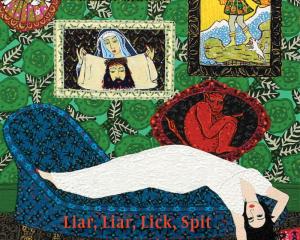
It is not a topic that has featured in any really major way in mainstream literature; indeed, it falls into the "let's not talk about it" category, as far as the public is concerned.
Full-on gays, lesbians and transgenders have been topics regularly mined by authors, but not bisexuality.
It was always thus. If you know anyone who is openly bisexual, they will probably regale you on the subject of their pariah status. The subject is all right if it is approached academically and, indeed, every two years an international conference on bisexuality is held. I attended my first in 1992 when I was invited to present a research paper in Berlin and was amazed to learn conference delegates were being accorded a German Government reception. Others I have attended, in Sydney and Toronto, have been equally earnest occasions.
There is evidence to suggest that bisexuals (particularly men who have sex with men but women, too) make up a larger proportion of the general populace than homosexuals. This is very much the theme in Irving's novel. Only a handful of straights make an appearance but when it comes to sexual diversity, Irving ticks every box (though I think he missed dykes on bikes). The book contains more kinks than my garden hose and some of them make amusing characters.
But the story, jam-packed with every sexual cliche imaginable (plus a few that are not readily summoned to mind) fails to gel. In the end, the book has more sex but less of a story line than your average porn film. Any sympathy (or empathy) one felt at the start of the book, when its central character, Billy, is 15 and struggling with his orientation, has long since evaporated a half-century later when the story dies as slowly and painfully as any of the Aids victims it mourns.
It was a bold direction for Irving to take; it was just such a pity he got lost.
• Geoffrey Vine is a Dunedin journalist and Presbyterian minister.












